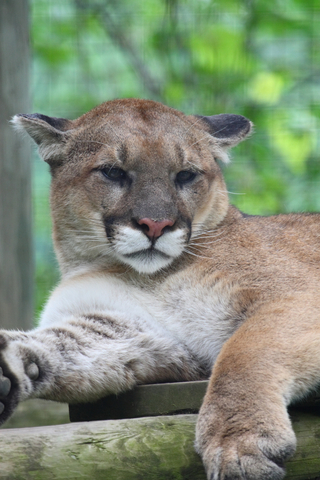When you hear the term ‘cougar,’ what do you think of? The stereotypical older woman who prowls on unsuspecting young men? The powerful, wealthy woman who can attract young cubs to their fold simply because she can afford to look younger and has money to burn? The older, unmarried woman who only knows how to express her sexuality by publicly pursuing young men for sex?
Or, all of the above?
As women, we often get a bad rap when it comes to expressing our sexuality. So, I find it intriguing that social researchers have started to pay attention to the cougar moniker and whether or not it is a pejorative or a positive vision that expresses that women continue to have sex lives beyond the age of 40.
According to novel research published in the Journal of Aging Studies, the term ‘cougar’ originated with the launch of a dating website geared toward matching older women and younger men, noting that “the story is that one of the two women who founded the website was told by a nephew that the two ladies were like cougars in search of small, defenseless animals.” Since that time, various websites have been launched, annual Cougar Conventions held and hit television series (Cougar Town) broadcast.
Interestingly, it’s only recently that there has been a renewed interest in women’s sexuality in midlife and lord knows, I’ve explored the topic in great detail on FlashFree. However, stereotypes of women losing their sexual desirability, coupled with the overarching notion that women in menopause are equal to women who are sexually dysfunctional leaves little to the imagination or to reality; as the researchers point out, “the dominant sexual script for women over forty has been the frigid older woman.” Moreover, what about the woman who works hard at staying healthy, possesses a youthful demeanor and appearance and counter ideologies that dictate that they must act and dress a certain way? Or, a woman who dates a younger man because she likes him, not because she’s on the prowl for sex or needs arm candy?
The truth is that when a group of women ranging in age from the their 20s to their 60s were asked about the term “cougar” and what it meant to them, they overwhelmingly accepted the so-called behavior associated with the term while rejecting the label itself. “In other words, older women dating or pursuing younger men was accepted by some women as an alternative sexual script.” And why not?
Yet, some women interpreted the concept as positive, saying that the term was a descriptor for a strong, self-confidant decisive woman, a woman with sexual self-assurance and sexual confidence. Some liked the term because “they believed that it called attention to the positive aspects of older women dating younger men,” suggesting a “relationship dynamic [that] makes biological sense because it allows men and women to be in their ‘sexual prime’ at the same time.” Others were drawn to the term because the concept helped level the playing field, rallying against cultural norms and sexual double-standards that “dictate that only men should date younger partners.”
On the flip side? The women who viewed the term negatively found it insulting because it labeled women as aggressive and violent, masculinized them, conceptualized them at “on the prowl for a partner’s body rather than his mind.” Additionally, it might actually distort the picture of who pursued whom; in some cases, it is the younger man who does the pursuing.
The researchers note that “culture shapes our feelings about aging. Women who rejected the term did so because it conjured the image of a specific type of woman…who does not look like a regular woman or…who is desperate and fighting aging or who does not followed gendered norms for sexual interaction.” Yet, when they probed further, many of these women could embrace the idea that the term acknowledges that “women do not stop feeling sexual desire after turning forty,” …”a welcome alternative to images which dismiss them or make them invisible as sexual beings.”
Yet, for as many who have some sort of lapse in their sexual desire or function as they age, there are countless others who remain interested in and highly sexually active well into their 70s and 80s. The theme here is that “women’s experiences with sexuality and aging are far from uniform…and factors such as generation, relationship status, sexual orientation, cultural norms, health or partner’s health” all come into play.
Personally, I fall in the middle. I would like to believe that the sexual script is being rewritten for women as they age, that culture is beginning to accept that women don’t become invisible the minute that they hit age 40. And yet, I don’t care for the negative connotations — on the prowl, helpless young men, insatiable women. In an ideal world, women don’t have to defend every choice that is viewed as at odds with the norm, whether it’s pursuing a career while simultaneously raising children, deciding not to have children or get married, choosing a same sex partner, choosing a younger partner or maintaining health and appearance simply because it feels good. But we are far from that utopian vision and I highly doubt that we’ll realize it in my lifetime.
What do you think? Who’s your cougar?







